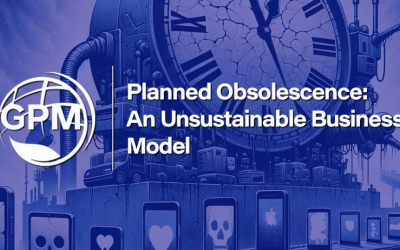Patents: Protecting Progress or Stifling Innovation?

“Patents are important because they help protect your invention by giving you the exclusive right to stop others from copying, manufacturing, selling, or importing your invention without your permission.” – patentrebel.com
Sounds great, right? At first glance, patenting a groundbreaking invention appears to be a win-win for inventors and society: inventors get recognition and reward for their ingenuity, while society benefits from innovations that improve lives and solve pressing problems. But what happens when this system, designed to incentivize creativity, becomes a mechanism for suppression? What if inventions with the potential to cure cancer or eliminate fossil fuels are locked away in corporate vaults, never seeing the light of day?

Consider the story of Tom Ogle. In 1977, Ogle developed, patented and implemented a revolutionary “vapor carburetor” that enabled vehicles to achieve over 100 miles per gallon of gasoline without producing carbon emissions. This was a groundbreaking leap forward for energy efficiency and environmental protection. Yet, instead of transforming the automotive industry, Ogle’s invention was buried. An international financier acquired the patent and handed it off to a corporation with little interest in disrupting the status quo of oil dependency. Evidence suggests this was a deliberate act to stifle competition and protect the profits of powerful energy interests.
The harassment Ogle faced from oil companies—entities with billions of dollars at stake—was well-documented. His tragic death in 1981 left many questioning the lengths to which vested interests would go to ensure his research and technology were silenced. Today, Ogle’s groundbreaking invention remains nothing more than a footnote in history, a “what could have been” story of innovation thwarted by greed.
This raises critical questions: How many other transformative technologies are collecting dust in corporate patent libraries? How many solutions to climate change, renewable energy, and life-threatening diseases are suppressed to protect existing profit streams? The implications are staggering. Imagine if Ogle’s invention had flourished. Could advancements in his design have eliminated the need for gasoline altogether? How would such a shift have benefited the environment, human health, and global economies?
The current patent system, while well-intentioned, is deeply flawed when it allows corporations to hoard innovations rather than nurture them. This approach prioritizes profit over progress, often at the expense of humanity’s collective well-being. Instead of using patents as weapons of monopoly, we should reconsider their purpose. What if patents for critical inventions were made publicly available, allowing researchers, engineers, and entrepreneurs worldwide to build upon them? Could such a shift unlock unprecedented advances in medicine, energy, and technology?

We stand at a crossroads. The challenges we face demand bold, collaborative solutions. Releasing patents for the benefit of humanity might seem radical, but it’s a necessary step to address these urgent issues. Innovation should not be confined to corporate boardrooms or suppressed by profit-driven motives. It belongs to the world.
As a society, we have the power to rethink and reshape the patent system. Let’s champion transparency and collaboration over secrecy and greed. Let’s honour inventors not by locking their creations away, but by ensuring their ideas live on, flourish, and make a difference.
Anything can be done—we just need the courage to do it.
We CAN do better
Eliminate Money & Profit
When Money and Corporate Profit Become Irrelevant: A Vision of Resource-Based Living Imagine a group of people stranded on an island. Among their possessions are gold, diamonds, and wads of cash. Yet, without access to food, water, or shelter, their wealth holds no...
Resource Based Economy
Embracing a Resource-Based Economy: A Vision for a Sustainable Future In a world grappling with inequality, resource depletion, and environmental crises, a Resource-Based Economy (RBE) offers a transformative solution. Unlike traditional monetary systems, an RBE...
Planned Obsolescence: An Unsustainable Business Model
Planned Obsolescence: An Unsustainable Business Model March 13, 2024 by Michael Pace Original Article Let’s start by defining some terms. Planned Obsolescence involves designing products to quickly break or become obsolete in the short to mid-term, with the general...
Time Bucks
The Future of Trade: An Open-Sourced Labour Exchange Economy Based on Time Imagine a world where your time is the primary currency. Instead of relying on fiat money, you trade your hours of labour directly for goods and services. This concept, often referred to as a...
MIT study explains why laws are written in an incomprehensible style
The convoluted “legalese” used in legal documents conveys a special sense of authority, and even non-lawyers have learned to wield it. Anne Trafton | MIT News Publication Date: August 19, 2024 Legal documents are notoriously difficult to understand, even for...
Repair Cafe
Planned obsolescence has slowly but surely crept into our consumer-driven society. Repair Cafés are a great way to combat wasteful built-it policy while simultaneously cleaning up our environment. Items you purchase with your hard earned cash don't need to end up in...
Re-write the Laws
Living in Harmony with Natural Law: A Blueprint for Freedom and Order When human beings live in accordance with Natural Law, they attain and sustain freedom, fostering a society rooted in order and harmony. Conversely, when human beings oppose Natural Law, they...
Make Education Free and Available to Everyone
Imagine a world where education is not a privilege but a right. A world where every individual has the opportunity to pursue their passions without the weight of financial burden. In this fully educated society, we would witness a remarkable transformation in how...
Ban interest
The Case Against Interest: A Call to End Usury and Liberate Society.The practice of charging interest on loans—usury—has long been a tool of exploitation, enriching a select few at the expense of the many. While often cloaked in legality, the system enabling...
Bee Bombs
Bee Bombs are a great solution to help save the bees and other essential pollinators from extinction. Best of all, anyone can do it! When Bee bombs explode, they disperse wildflowers seeds that, once planted, will produce a beautiful plot of flowers for pollinators to...









